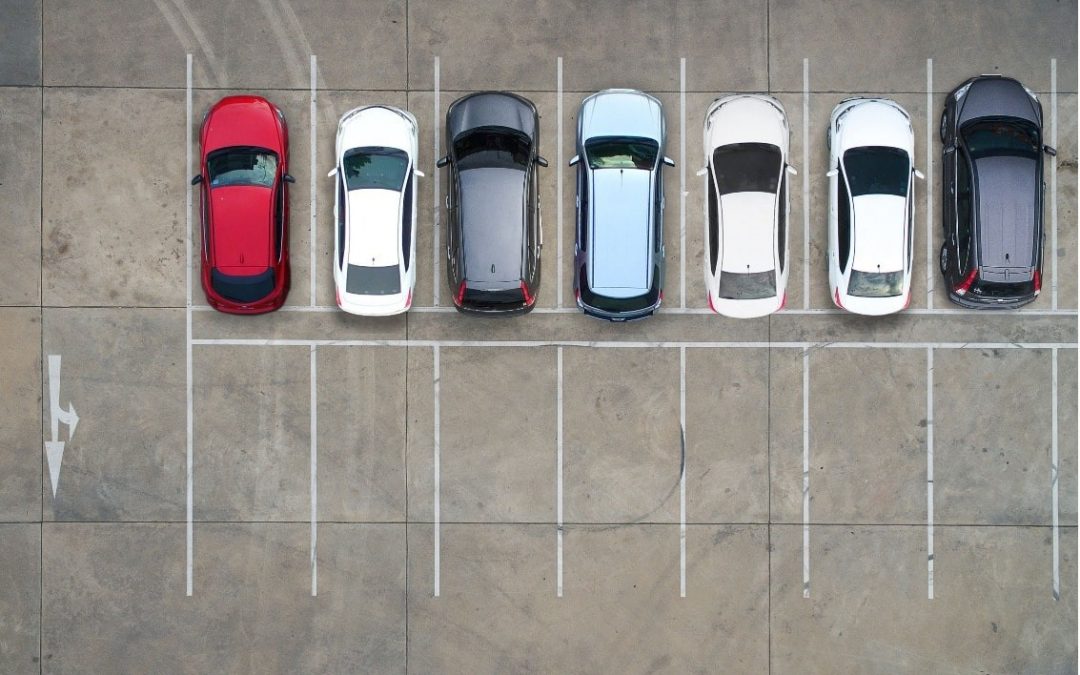When customers arrive at your Long Island business, the parking lot is their first impression. A high-quality paved lot is more than “just convenient” – it’s an investment in your property.
Proper parking lot paving involves much more than dumping asphalt. In practice, crews remove any old pavement, excavate and grade the base (using crushed stone or sand) to create a stable foundation.
Then hot-mix asphalt or concrete is laid in layers – a heavy binder course followed by a smooth wearing surface – and each layer is compacted and cured.
We seal and stripe the lot for lasting performance. (As an alternative, maintenance coats like chip seal spray liquid asphalt and embed crushed stone on existing pavement).
In our experience at Islandwide Paving & Masonry, attention to base preparation and drainage is critical: engineers warn that without proper grading and stormwater management, a “cheap” lot can deteriorate quickly.
What is paving a parking lot?
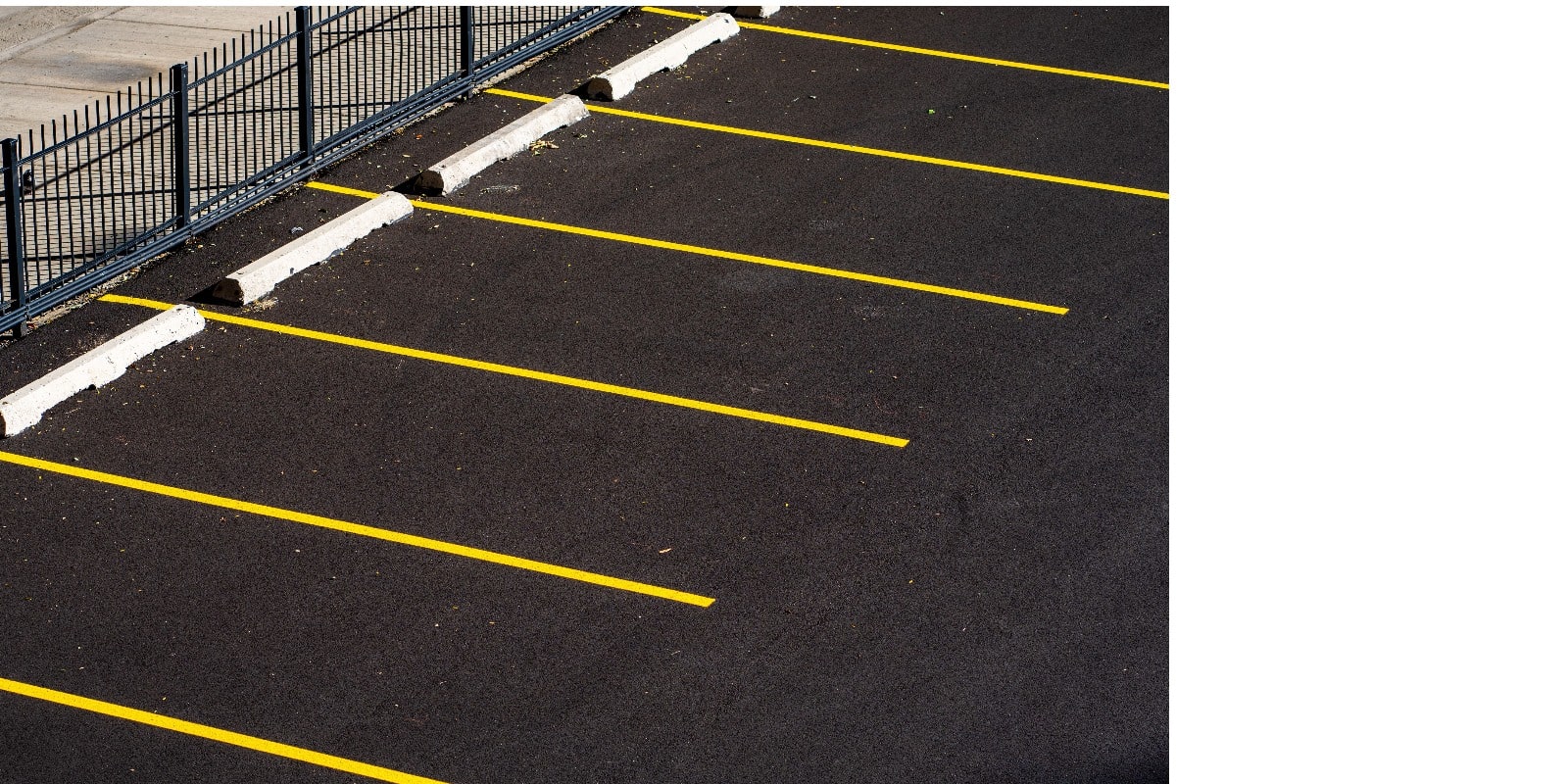
Paving a parking lot means constructing a durable, even driving surface. It typically starts by removing old pavement and ensuring a solid sub-base (crushed stone, gravel, etc.) is graded and compacted.
Then a layer of hot-mix asphalt is applied, often in two lifts (a thicker binder layer and a finer top layer). Each layer is rolled flat and compacted. Finally, the surface is cured and usually given a seal coat every few years to protect against weather.
For many projects, we also install drainage structures (gutters, catch basins, sloping) during paving to prevent water pooling. For maintenance, contractors may use a chip seal: a thin surface treatment where hot asphalt emulsion is sprayed and immediately covered with stone.
Chip seal can be done in a day, making it a quick, lower-cost resurfacing option, but it leaves a rougher finish and only lasts about 7–10 years. In short, paving a lot is a multi-step process of site prep, material placement, and finishing – all aimed at creating a flat, safe lot that meets codes and customer needs.
What material is used for parking lots?
By far the most common paving material for parking areas is asphalt. In the U.S., roughly 94% of parking lots are paved with asphalt.
Asphalt is favored because it’s relatively inexpensive, quick to install, and flexible (it expands/contracts with freeze–thaw cycles in Long Island winters).
A well-built asphalt lot typically lasts 15–20 years with routine sealcoating. Newer asphalt mixes often incorporate recycled materials (old asphalt or rubber) – making it one of the world’s most recycled.
We find asphalt best for most Long Island businesses because of its smooth ride quality and adaptability to traffic conditions. The other main material is concrete, used less often but where appropriate. Concrete parking areas can last over 30 years with proper maintenance.
Concrete resists heavy loads and high heat better than asphalt, so it’s chosen for loading zones or sun-exposed lots. It also offers decorative finishes (staining, stamping). However, concrete has a higher upfront cost and can crack under freeze–thaw cycles if not installed carefully.
In local projects we balance this by using reinforced concrete or extra joints when concrete is needed. One caveat: despite the durability, concrete has a higher carbon footprint unless recycled material is used.
A third option you’ll hear about is tar-and-chip (chip seal). This combines a spray of asphalt emulsion with a loose layer of crushed stone.
It’s about 25–50% cheaper upfront than new asphalt. In fact, chip seal “costs up to 50% less” and can be done very quickly. However, the trade-offs are that the surface is rougher, noisier, and the loose stones can scatter at first.
Chip-seal surfaces typically last only ~7–10 years before reapplication (versus 15–20 for asphalt). We generally recommend chip seal only for low-traffic lots or for refreshing aged pavement, while asphalt is better for busier Long Island commercial lots.
Other materials exist (e.g. permeable pavers or gravel), but for commercial parking lots on Long Island they’re rare. Some of our clients do use permeable paver systems to meet stormwater rules; these allow rainwater to filter through, reducing runoff naturally. Islandwide Paving & Masonry can install these when needed.
In summary, asphalt and concrete dominate parking lots, with chip seal as an economical maintenance option. Our job is to choose the right material for the traffic, climate, and your budget.
5 Ways Parking Lot Paving Can Improve Your Business
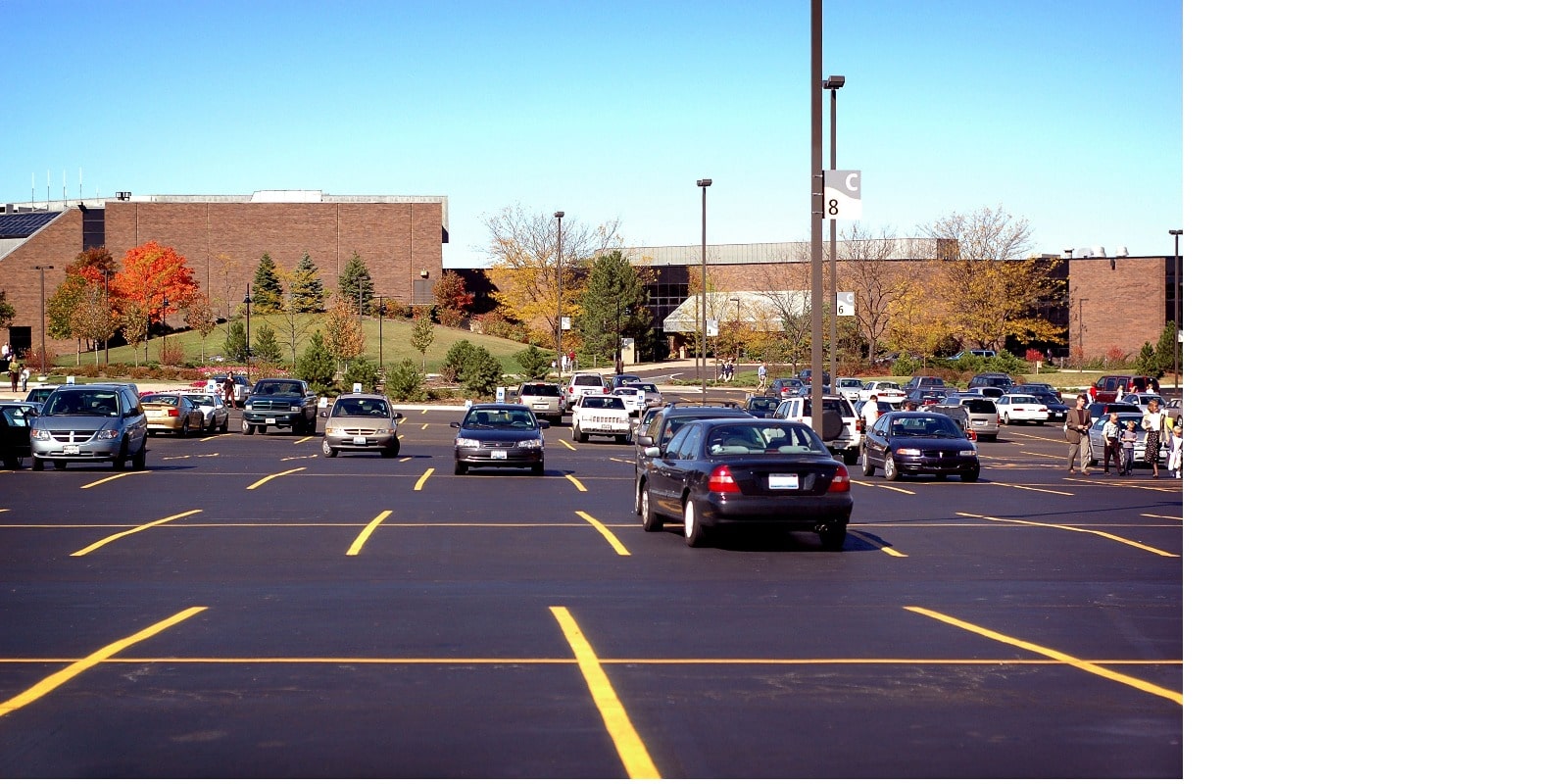
Paving or repaving your parking lot isn’t just about aesthetics – it delivers real business benefits. Based on our Long Island experience and industry insights, here are five key ways a quality parking area can boost your bottom line:
1. Boosts Curb Appeal & Property Value
A fresh, smooth parking lot makes a striking first impression. Research shows that curb appeal heavily influences customers – in one local study, about 70% of first-time sales are driven by curb appeal. A neat lot with clean striping signals professionalism, which can attract more clients or tenants.
In fact, experts note that a new parking lot “can significantly impact your property’s value,” since it gives the property a modern look and effectively increases usable space.
In our projects, clients often report that after repaving they receive compliments on the upgraded appearance. In short, a high-quality paved surface makes your business look successful, and higher perceived value can translate to higher rents or sales prices down the road
2. Enhances Safety and Accessibility
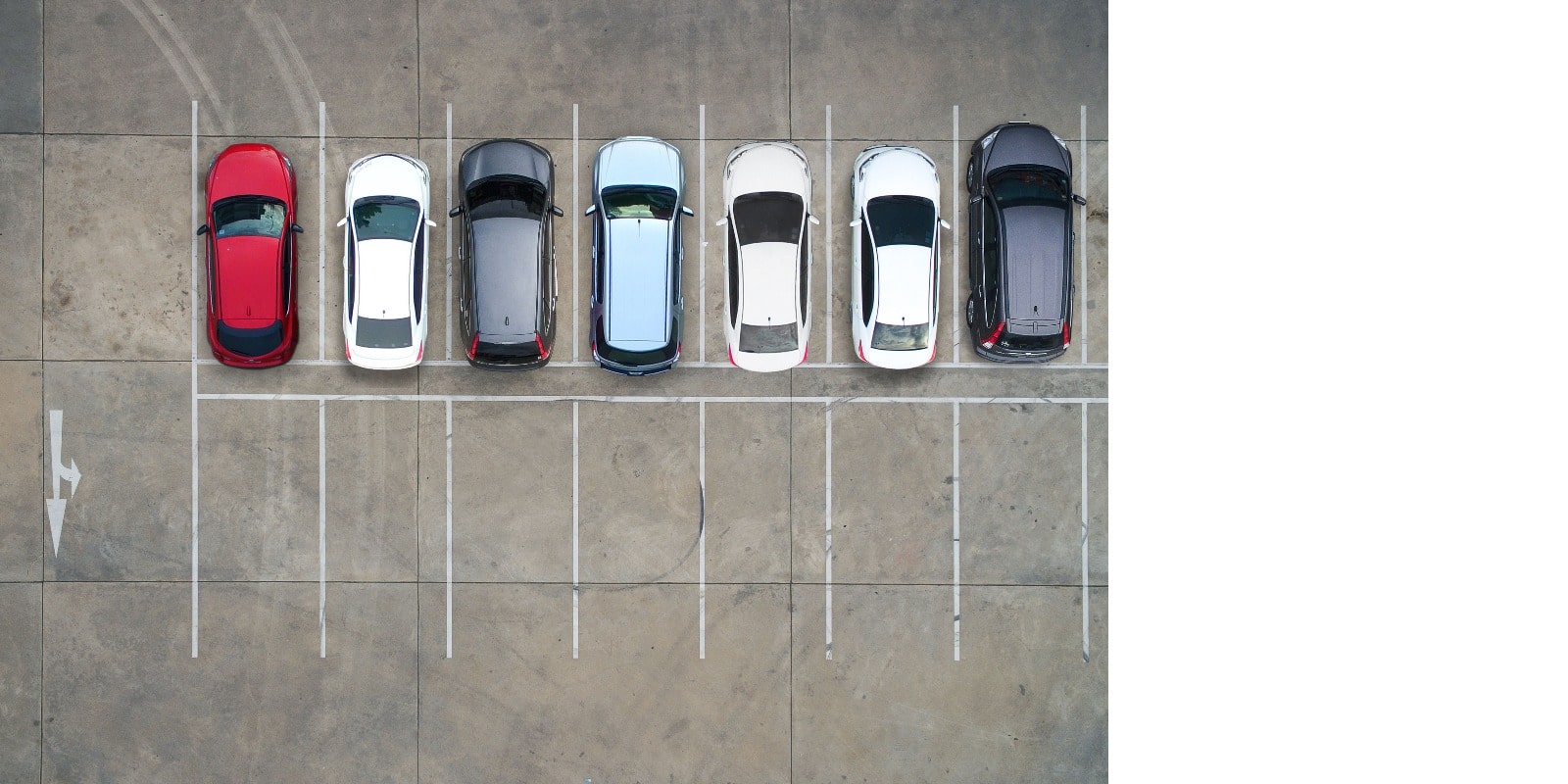
Customers and employees navigate the parking lot before they even enter your building. A smooth, well-leveled lot minimizes trip hazards and vehicle damage.
As one industry source observes, “uneven or damaged pavement can pose a risk to pedestrians and vehicles”. By contrast, professional paving creates an even surface that greatly reduces accidents and potholes.
We always include clear striping, signage, and ADA ramps in our paving plans so drivers can park and walk safely.
These measures can also lower liability. For perspective, the National Safety Council reports about 50,000 crashes occur annually in parking lots, and roughly 60% of outdoor slip-and-fall claims are due to uneven surfaces or poor maintenance.
By paving your lot, you visibly reduce these risks. Improved lighting and marked crosswalks (often part of paving projects) further protect customers at night.
All told, a well-paved lot is a safer lot – which protects your customers, your reputation, and your bottom line.
3. Reduces Maintenance Costs.
A properly paved parking lot is much cheaper to maintain over time. Unlike a patchwork lot full of cracks and potholes, a new asphalt or concrete surface can go years with minimal upkeep.
We tell clients that professional installation pays off: according to industry analysis, a “properly paved parking lot can last for many years with minimal upkeep, saving you money on repairs”. In Long Island’s weather, good drainage is also critical.
We ensure the lot is graded so water drains off – poor drainage otherwise leads to cracks and eventual pavement failure. Practically speaking, we’ve seen property owners who resurface their lot report far fewer call-outs for puddles, cracks, or line touch-ups in subsequent seasons.
Over a decade, the savings in avoided patching and liability claims often outweigh the initial paving cost. (For example, one FAQ on Long Island pavement notes that a well-built lot “can last 15-20 years with proper maintenance,” extending your return on investment.)
4. Improves Customer Experience and Traffic Flow
An attractive lot isn’t just about looks – it’s about convenience. By paving, you can reorganize the space to fit more cars and traffic lanes efficiently. Our crews help clients lay out their lots with optimized striping so customers can easily find a spot and navigate out without congestion.
A recent blog notes that a well-paved lot with “clearly marked spaces and easy access” makes your property more user-friendly.
We also design ADA-compliant parking stalls and ramps. In retail and hospitality especially, customers appreciate being able to park close to the entrance without confusion. Finally, during storms, a properly sloped new lot means you’re less likely to have large puddles or mud patches blocking spaces.
This reliability keeps your lot open for business in all weather, rather than having to shut it down or tape it off due to hazards.
5. Supports Sustainability and Compliance.
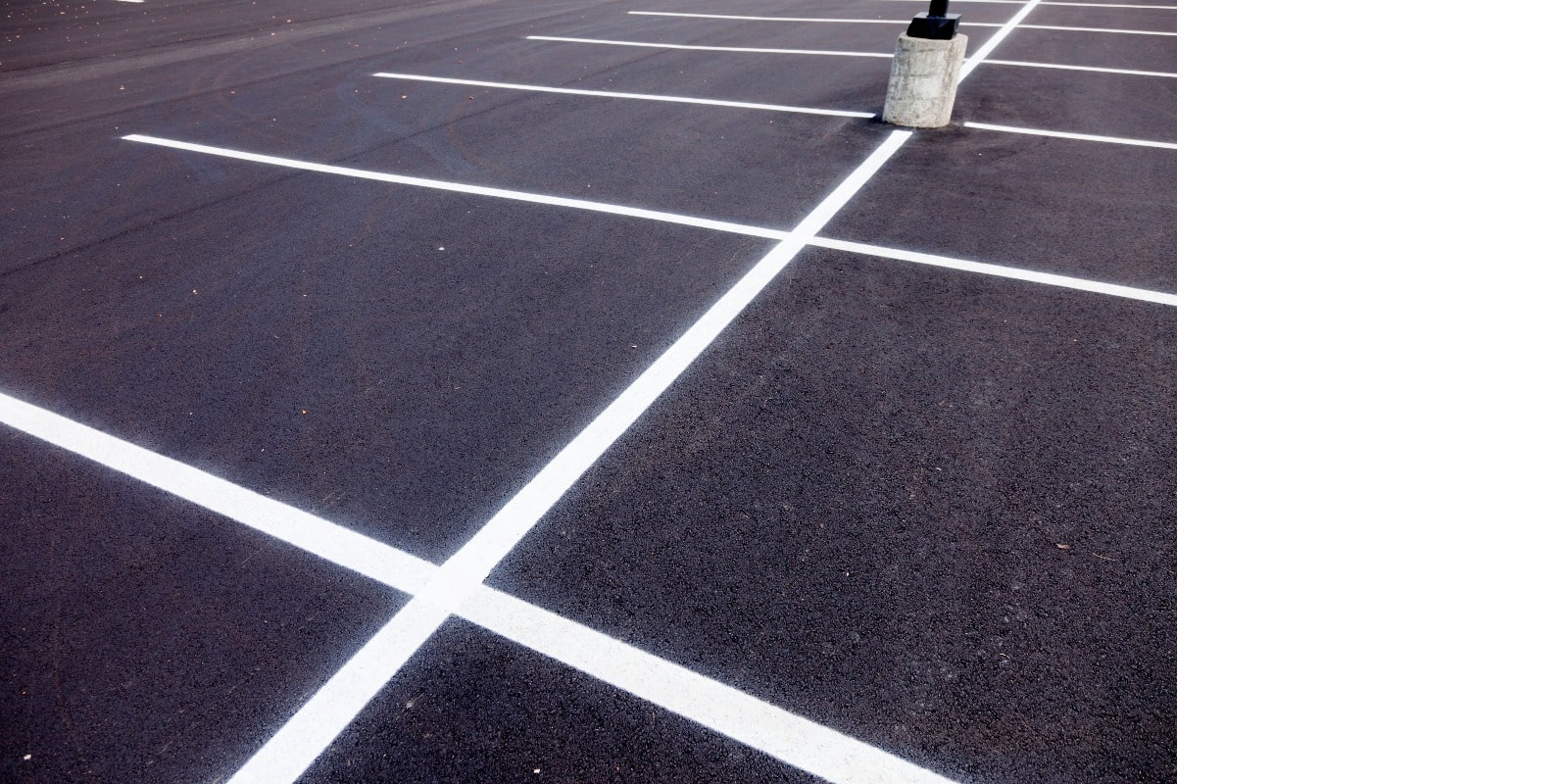
New paving can be done with green practices in mind. Modern asphalt is highly recyclable: it is “one of the most recycled materials in the world,” with old asphalt routinely reclaimed and reused.
We can specify mixes containing recycled content or even install permeable asphalt or concrete to meet local runoff regulations.
Good paving also includes stormwater measures, which align with Long Island’s environmental rules. For instance, ensuring proper drainage and using sealers can reduce oil and pollutant runoff.
There’s also a marketing angle: customers are increasingly eco-conscious, so having a “greener” parking lot can boost your image. Even chip seal has an eco side – it often uses locally sourced crushed stone and requires fewer raw materials.
Overall, paving your lot with quality materials and design helps you comply with local codes (avoiding fines) and shows that your business cares about sustainability.
Conclusion
In short, investing in a paved parking lot delivers multiple payoffs. From our perspective at Islandwide Paving & Masonry, a professional parking lot installation is an investment in your business’s safety, appearance, and longevity.
Our Long Island-based team (licensed, insured, and with decades of local experience) uses only high-quality materials suited to our climate. We design each parking lot for optimal drainage, ADA compliance, and durability, ensuring it meets both your needs and all regulations.
Ready to improve your property? Contact Islandwide Paving & Masonry for a free quote – we’ll assess your lot and recommend whether asphalt, concrete, chip seal, or another solution is right for you. A smooth, attractive parking lot will welcome your customers and protect your investment for years to come.
A well-paved parking lot is a hidden asset for any Long Island business. It enhances curb appeal, boosts property value, and creates a safer environment – all of which can directly translate to increased customer trust and sales.
By choosing quality paving (and a trusted local contractor like Islandwide Paving & Masonry), you ensure that your lot will withstand heavy traffic and weather while requiring.
In our projects, businesses often tell us they feel proud of their improved grounds, and customers definitely notice the difference. Don’t let a deteriorating lot turn customers away. Invest in professional parking lot paving today to enjoy years of beauty, safety, and performance.

